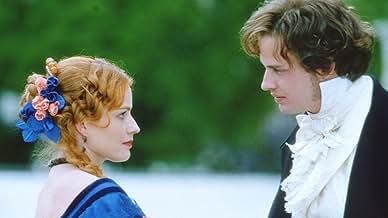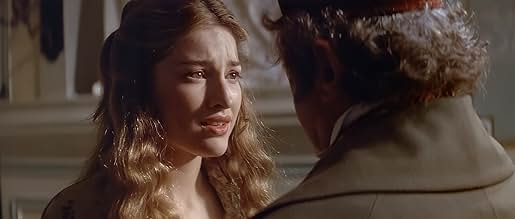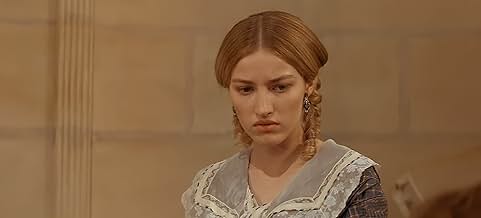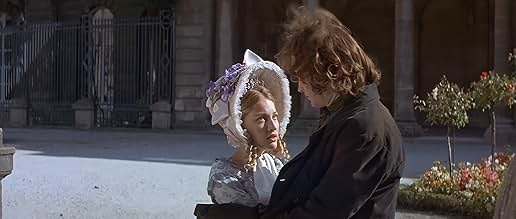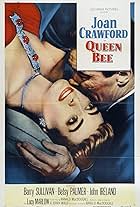IMDb RATING
6.2/10
2.9K
YOUR RATING
When her sister dies in 1846, Bette moves from the château to Paris to work as a theater seamstress. She helps a handsome, starving artist. When her niece lures him away from her, she plans ... Read allWhen her sister dies in 1846, Bette moves from the château to Paris to work as a theater seamstress. She helps a handsome, starving artist. When her niece lures him away from her, she plans a devious revenge.When her sister dies in 1846, Bette moves from the château to Paris to work as a theater seamstress. She helps a handsome, starving artist. When her niece lures him away from her, she plans a devious revenge.
- Director
- Writers
- Stars
- Awards
- 1 win & 1 nomination total
- Director
- Writers
- All cast & crew
- Production, box office & more at IMDbPro
Featured reviews
GOOD. Pleasant satirical comedy to watch. Set at the end of the first half of the 19th century, it has great costumes, renowned actors, and an excellent soundtrack. By the way, the soundtrack is filled with great classics of classical music from that period. The script is well constructed and intelligible with lots of satire and sarcasm. The pace of the film is very busy, with the succession of several events every minute. I gave it a 7 because I didn't see anything extraordinary, exceptional, captivating, exciting, or different from other better films that I have seen that could elevate it. As for my recommendation to IMDb moviegoers, yes, I recommend it.
Cousin Bette, a period piece, set in mid nineteenth century shows the moral, social and economic bankruptcy of noble class prior to upheaval in a perversely funny series of backstabbing and double-crossing orchestrated by Ms. Lange, a poor disen- franchised but strong willed cunning cousin. The other actors Ms. Shue, Mr. Hoskins, Mr. Young were excellent as well. The dialogue was well written as to be naturally funny even when dealing with death, betrayal, or malicious conniving. My thanks to all involved for wonderful afternoon's entertainment.
Every once in a while, a movie comes along that lets one revel in emotions that are generally frowned upon in genteel society. Revenge is one such emotion, and the very black comedy Cousin Bette deals it out in generous portions.
Bette (Jessica Lange) has always lived in the shadow of her more beautiful sister, Adeline. Adeline was always prepared for marriage and society, while Bette became a virtual servant for her family. To make matters worse, Adeline marries the one man Bette loves, the Baron Hulot. The film opens with Adeline on her death bed, listening to the confessions of her adulterous husband and spendthrift son. She makes Bette promise to take care of her family. The malicious grin on Bette's face lets us know what is coming. Bette orchestrates her revenge on each member of the family, with a cunning her family never suspected.
Part of what makes this film so delicious is that none of the characters are really very likeable, but they are all very interesting and well drawn. Even Bette is not someone you would want to welcome into your own family (although she'd make a fascinating guest at a dinner party). The only character who fares even mildly well is Cesar Crevel (Bob Hoskins). A merchant who has become the wealthiest man in Paris, he is attempting to buy his way to respectability. He is at least without pretense, even going so far as to offer 200,000 francs to see Hortense Hulot (the Baron's daughter, played by Kelly MacDonald) naked.
The story follows Bette's attempts to destroy the Baron and his family by manipulating them in their love affairs. The marriage of Hortense is expected to save the family financially, hence the appearance of Crevel. But Hortense loves the penniless Count Wenceslas Steinbach (Aden Young), a sculptor. Meanwhile the Baron has been borrowing from everyone in Paris to keep his mistress, Jenny Cadine. Bette controls all of the characters like a Grand Master.
The backdrop to the film is the decay of the French aristocratic society. Resting on the laurels of the Empire of Napoleon, oblivious to the coming revolution (the film begins in 1846), and in complete denial of the changes around them, we actually cheer for Bette as she systematically destroys the Hulot family. In a way it's the revolution carried out from within, making the fall all the more sweet.
This film is really exceptional. My only criticisms would be that (1) Elisabeth Shue as the famous actress/courtesan Jenny Cadine is merely adequate, (2) it is almost impossible to imagine the stunning Jessica Lange as the "plain" sister, and (3) the characters' accents tend to vary from time to time. The script is intelligent, clever, and realistic. The acting is very strong all around, especially by Lange. Hoskins is terrific, hitting just the right note of a materialistic man trying to be a nobleman, but not quite getting it. The locations and sets are lush and as decadent as one would expect. The direction of Des McAnuff is crisp and assured, the pace even and well controlled.
Bette (Jessica Lange) has always lived in the shadow of her more beautiful sister, Adeline. Adeline was always prepared for marriage and society, while Bette became a virtual servant for her family. To make matters worse, Adeline marries the one man Bette loves, the Baron Hulot. The film opens with Adeline on her death bed, listening to the confessions of her adulterous husband and spendthrift son. She makes Bette promise to take care of her family. The malicious grin on Bette's face lets us know what is coming. Bette orchestrates her revenge on each member of the family, with a cunning her family never suspected.
Part of what makes this film so delicious is that none of the characters are really very likeable, but they are all very interesting and well drawn. Even Bette is not someone you would want to welcome into your own family (although she'd make a fascinating guest at a dinner party). The only character who fares even mildly well is Cesar Crevel (Bob Hoskins). A merchant who has become the wealthiest man in Paris, he is attempting to buy his way to respectability. He is at least without pretense, even going so far as to offer 200,000 francs to see Hortense Hulot (the Baron's daughter, played by Kelly MacDonald) naked.
The story follows Bette's attempts to destroy the Baron and his family by manipulating them in their love affairs. The marriage of Hortense is expected to save the family financially, hence the appearance of Crevel. But Hortense loves the penniless Count Wenceslas Steinbach (Aden Young), a sculptor. Meanwhile the Baron has been borrowing from everyone in Paris to keep his mistress, Jenny Cadine. Bette controls all of the characters like a Grand Master.
The backdrop to the film is the decay of the French aristocratic society. Resting on the laurels of the Empire of Napoleon, oblivious to the coming revolution (the film begins in 1846), and in complete denial of the changes around them, we actually cheer for Bette as she systematically destroys the Hulot family. In a way it's the revolution carried out from within, making the fall all the more sweet.
This film is really exceptional. My only criticisms would be that (1) Elisabeth Shue as the famous actress/courtesan Jenny Cadine is merely adequate, (2) it is almost impossible to imagine the stunning Jessica Lange as the "plain" sister, and (3) the characters' accents tend to vary from time to time. The script is intelligent, clever, and realistic. The acting is very strong all around, especially by Lange. Hoskins is terrific, hitting just the right note of a materialistic man trying to be a nobleman, but not quite getting it. The locations and sets are lush and as decadent as one would expect. The direction of Des McAnuff is crisp and assured, the pace even and well controlled.
A somewhat sanitised version of the Balzac classic which departs disappointingly from the original story. Jessica Lang is far too pretty a version of the downtrodden, wizened old hag Bette of the original and so conveys none of her deviousness in the many schemes to avenge herself against her condescending relatives. Missing completely from the film is arch-whore Valerie, a central character of the book's plot, who dies a grim death from a disfiguring tropical disease at the conclusion, thus removing an important moral message of the tale. Most of Balzac's other works viz. Madame Bovary, contain one of these. That said, costumes and furniture are fairly faultless which shows Hollywood has at least tried to do justice to a great book.
"Cousin Bette" is a witty and deliciously mean-spirited black comedy. The operative term, however, is "mean-spirited," so this film is not for all tastes. Cousin Bette is victimized (at least in her own mind) by her selfish and unfeeling relatives. Based on a Balzac novel, the story follows Bette's attempts to find love and to get even with those she believes have wronged her. Things don't ever work out as Cousin Bette plans, but the lady proves she is adaptable. Jessica Lange, despite her beauty made me believe that she was an unattractive spinster. Bob Hoskins was, as always, excellent, as was Elizabeth Shue, who nearly stole the show. Good stuff. Recommended.
Storyline
Did you know
- TriviaAccording to his diaries, Alan Rickman turned down a role in this film.
- Quotes
Mlle. Elisabeth 'Bette' Fisher: For the sake of their pleasure, men commit the most appalling crimes.
- SoundtracksThe Other Side of Heaven
Performed by Elisabeth Shue
Music and Lyrics by Danny Troob and Des McAnuff
Adapted from the music of Jacques Offenbach
Produced by Simon Boswell
- How long is Cousin Bette?Powered by Alexa
Details
Box office
- Gross US & Canada
- $1,295,194
- Opening weekend US & Canada
- $76,488
- Jun 14, 1998
- Gross worldwide
- $1,295,194
Contribute to this page
Suggest an edit or add missing content



